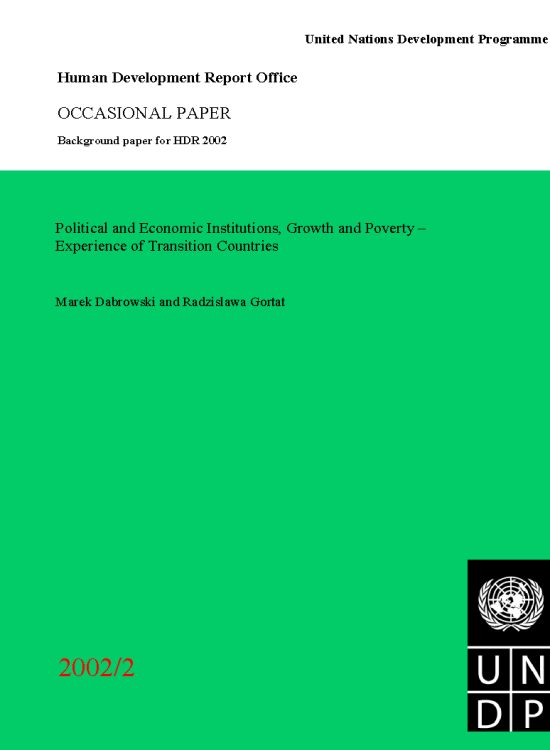Political and Economic Institutions, Growth and Poverty
Experience of Transition Countries

Download Report by Language
Document
dabrowskigortat2002.pdf
(702.21 KB)
Citation
Dabrowski, Marek, Gortat, Radzislawa. 2002. Political and Economic Institutions, Growth and Poverty: Experience of Transition Countries. New York.
Political and Economic Institutions, Growth and Poverty
Experience of Transition Countries
Posted on: January 01, 2002
The role of good governance, transparency and accountability of governments in supporting economic growth is widely and increasingly recognized by the world community in recent years [see e.g. WDR, 2002]. Experience of the countries of Central and Eastern Europe and the former Soviet Union brought additional evidence in favor of a hypothesis that good political and economic institutions do matter a lot. These countries had to overcome the heritage of communist ideology, authoritarian regimes and centrally planned economy in the relatively short time. The achieved results of transition process are uneven. Simplifying somewhat, we can distinguish two broad groups of transition countries, according to their progress in economic and political reforms. The first one, which may be called as the “leading reformers” group consists of middle-income countries of democratic capitalism of the Central Europe and Baltic region (CEB). The second group of less advanced reformers includes mainly lowerand lower-middle-income countries of the Commonwealth of Independent States (CIS) where both capitalism and democracy are still immature and sometimes heavily distorted. During the first decade of transition, the first group represented a much better economic and social record in any respect than the second one. Trying to find causes of such differentiation one must inevitably come, sooner or later, to the role of political and economic institutions such as constitutional division of power, electoral systems, political parties, free mass-media, civil society organizations, rule of law, independent and efficient judiciary, central bank independence and others. Some of these institutional factors will be analyzed in this paper, taking into consideration their impact on economic and social performance of transition countries.

